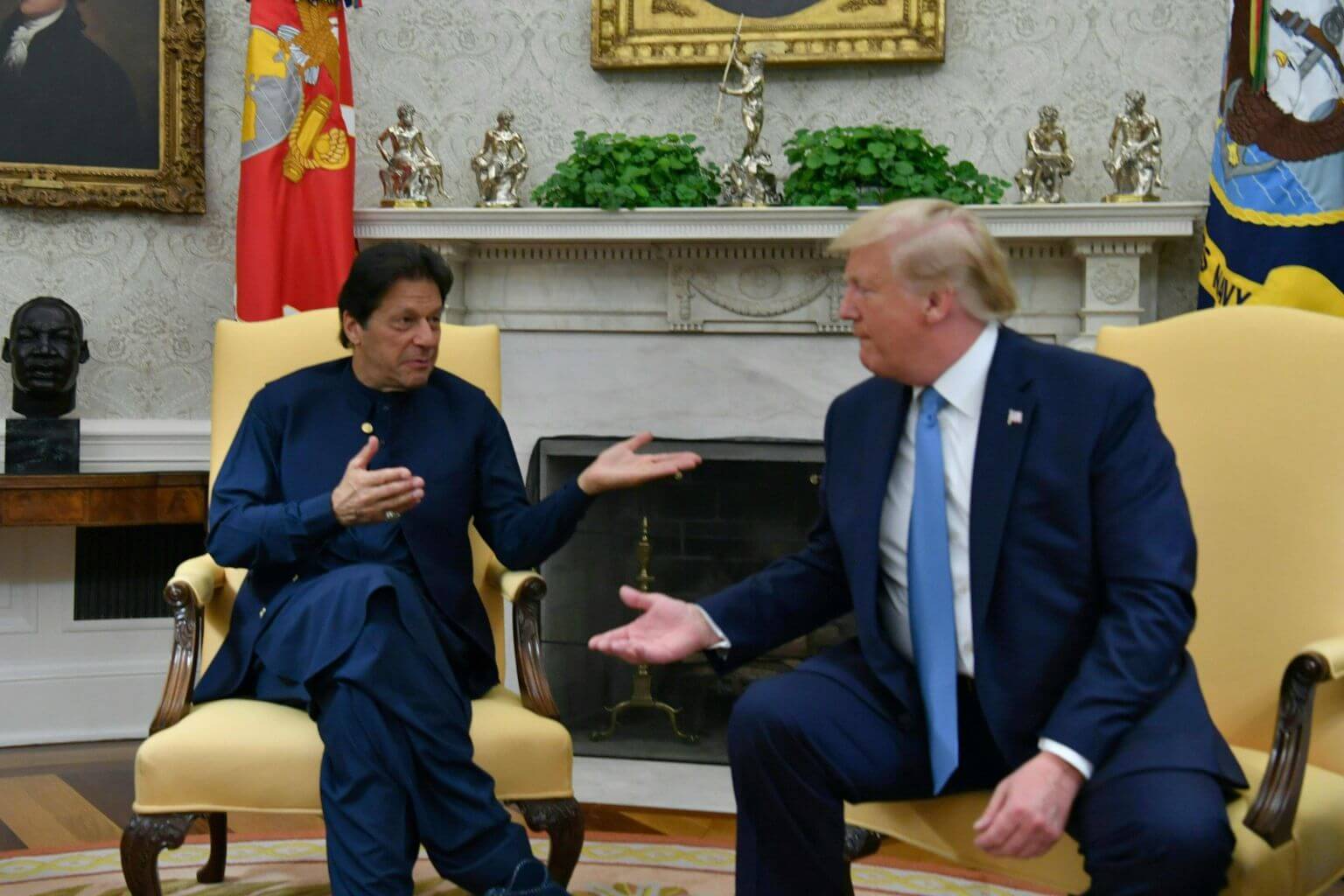Editorial Notes
Trump's efforts to mediate the Kashmir issue are much needed: Dawn
In its editorial, the paper urges Washington to play a more proactive role in the Kashmir dispute to ensure peace in South Asia.
Sign up now: Get insights on Asia's fast-moving developments

In a photo taken on July 22, 2019, US President Donald Trump and Pakistani Prime Minister Imran Khan (left) gesture during a meeting in the Oval Office at the White House in Washington, DC.
PHOTO: AFP
Follow topic:
ISLAMABAD (DAWN/ASIA NEWS NETWORK) - US President Donald Trump's advice that Pakistan and India must "work towards reducing tensions" in the wake of the abrupt cancellation of the special status and autonomy of India-held Kashmir shows just how grave the situation is between the two nuclear-armed states.
For historically, the Americans have only woken up and rushed to the region when the two neighbours have been on the brink.
And this is exactly where, Pakistan insists, the problem lies.
"A tough situation, but good conversations", is how Mr Trump described the current state of affairs in this region through his tweet on Monday, after speaking by phone to the leaders of the two countries in the space of a few days.
Many on this side of the border would have taken Mr Trump's latest attempt to disentangle Pakistan and India as a rudimentary effort at firefighting - not quite the mediation he offered over Kashmir during Prime Minister Imran Khan's visit to the White House last month.
It is intended to de-escalate present hostilities to avert a potential war in the region that would have long-term repercussions for the entire world.
It is not aimed at facilitating a resolution to the decades-old Kashmir dispute.
This is not for the first time that America has intervened to ward off possible military conflict in the region. But this time, Washington should play a more proactive role and make good on Mr Trump's 'offer' to mediate on the Kashmir dispute for long-term peace.
A constructive American engagement with both sides focused on finding a solution to the Kashmir dispute is important to ensure lasting peace in South Asia for the sake of its people as well as for international security and order.
The world has seen the two sides not being able to resolve the issue bilaterally.
The composite bilateral dialogue initiated in the late 1990s with the active facilitation of the world powers, including the US, is dead with no chance of its resurrection.
There is no doubt that India, which has always been averse to any suggestion of mediation over the Kashmir dispute by a foreign power or even by the UN, will put up strong resistance to such efforts.
Nonetheless, it is important to convince New Delhi to listen to the voice of reason once the international community, led by America, realises that peace and an improved relationship between India and Pakistan is in the best interest of all those with stakes in this region.
Dawn is a member of The Straits Times media partner Asia News Network, an alliance of 24 news media organisations.

